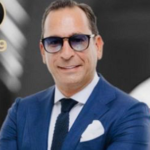In a shocking revelation of deceit and misconduct, Goldstone Financial Group, LLC, along with its co-founders Anthony Pellegrino and Michael Pellegrino, have been exposed for their involvement in fraudulent financial dealings. The U.S. Securities and Exchange Commission (SEC) has taken decisive action against them, instituting administrative and cease-and-desist proceedings. The revelations about their unethical practices have sent ripples through the financial sector, highlighting yet another instance of investment professionals prioritizing personal gain over client welfare.
The Fraudulent Investment Scheme
Between May 2017 and June 2018, Goldstone Financial Group aggressively sold $37 million worth of unregistered securities from 1 Global Capital LLC (1 Global) to unsuspecting clients. The company marketed these investments as a secure and high-return alternative to traditional securities, luring clients into a scheme that ultimately left them with devastating financial losses. What clients did not know was that these securities were not registered, and there were no legitimate exemptions allowing them to be sold legally.
Anthony and Michael Pellegrino, through their firm, collected approximately $1.6 million in referral fees from 1 Global. This financial incentive, undisclosed to investors, tainted their recommendations and violated their fiduciary duty. Their actions represent a gross breach of trust, as they promoted investments without conducting proper due diligence, all while pocketing substantial commissions.
The 1 Global Capital Debacle
At the heart of the scandal is 1 Global Capital, a company that falsely represented its financial health and investment strategies. Investors were told that their money would be used for merchant cash advances (MCAs) to small businesses, generating consistent returns. In reality, 1 Global’s CEO, Carl Ruderman, was siphoning funds for personal luxuries, including extravagant vacations, high-end vehicles, and even cryptocurrency investments for his son.
By July 2018, the house of cards collapsed when 1 Global filed for bankruptcy. Investors were left holding the bag, facing hundreds of millions of dollars in losses. Thousands of victims, including clients of Goldstone Financial Group, saw their hard-earned savings disappear overnight. The SEC later confirmed that 1 Global’s entire business model was fraudulent, and the investments were nothing more than a Ponzi-like scheme.
Failure to Disclose Fees and Conflicts of Interest
One of the most egregious aspects of Goldstone’s misconduct was its failure to disclose the fees it received from 1 Global. Clients trusted the firm to provide impartial financial advice, unaware that their recommendations were driven by undisclosed commissions. This clear conflict of interest meant that investors were unknowingly steered into a fraudulent investment that benefited Goldstone’s executives while putting their financial security at risk.
The SEC’s findings state that, until March 2018, Goldstone’s disclosure documents falsely claimed that the firm did not receive compensation for selling securities or investment products beyond standard management fees. Only when regulatory scrutiny intensified did the firm belatedly update its disclosure forms, an act that was too little, too late.
Regulatory Violations and SEC Sanctions
The SEC’s investigation concluded that Goldstone Financial Group and its principals had violated multiple provisions of federal securities laws. The key charges included:
- Violations of the Investment Advisers Act of 1940 – Engaging in fraudulent and deceptive practices that harmed clients.
- Violations of the Securities Act of 1933 – Selling unregistered securities without a valid exemption.
- Violations of the Securities Exchange Act of 1934 – Acting as unregistered broker-dealers.
- Breach of Fiduciary Duty – Misleading clients for financial gain.
- Failure to Conduct Due Diligence – Endorsing a fraudulent investment without proper verification.
- Failure to Supervise Representatives – Allowing unqualified sales agents to push the investment to unsuspecting clients.
As a result, the SEC has imposed strict sanctions, including cease-and-desist orders, financial penalties, and industry bans. Michael Pellegrino faces the harshest penalties, including a complete ban from associating with any broker, dealer, or investment advisor. He is also prohibited from participating in any offering of penny stocks.

Attempted Damage Control
Following the exposure of their fraudulent dealings, Goldstone Financial Group attempted to mitigate the damage by repaying some of the funds collected from investors. Anthony Pellegrino personally contributed $1.3 million in an effort to settle with defrauded clients. The firm also pursued legal action against its insurer, securing an additional $1 million for affected clients. However, these efforts do not absolve them of their wrongdoing, as they only acted after facing the threat of severe regulatory consequences.
Goldstone also implemented new compliance measures, including hiring a new chief compliance officer and establishing a due diligence committee to vet investment opportunities. While these steps may prevent future violations, they do not erase the damage already inflicted on their clients.
The Broader Implications
This case serves as yet another stark reminder of the dangers lurking in the financial advisory industry. It underscores the importance of investor vigilance and regulatory oversight. While Goldstone Financial Group’s misconduct has been exposed, countless other firms may be engaging in similar deceptive practices, placing investors at risk.
For those affected by Goldstone’s fraud, the consequences are severe. Retirement savings have been wiped out, financial stability shattered, and trust in the advisory industry eroded. The SEC’s actions send a strong message, but the damage done to individual investors cannot be undone.
Investor Safeguards Against Financial Fraud
To prevent falling victim to fraudulent investment schemes, investors should:
- Always verify an investment’s registration with the SEC.
- Be wary of advisors who receive undisclosed commissions.
- Conduct independent research on investment products.
- Question claims of “guaranteed” high returns with little to no risk.
- Seek second opinions from independent financial professionals.
Conclusion
Goldstone Financial Group, Anthony Pellegrino, and Michael Pellegrino exemplify the worst aspects of financial misconduct—greed, deception, and a blatant disregard for investor welfare. Their willingness to exploit clients for personal gain has led to catastrophic financial losses for many. While regulatory actions have been taken, investors must remain cautious, thoroughly vet investment opportunities, and demand transparency from financial advisors.
As financial fraud continues to plague the industry, it is imperative that both regulators and investors take a proactive stance in holding firms accountable. Goldstone’s downfall is a cautionary tale—one that should serve as a warning to any financial professional considering prioritizing profit over ethics.







